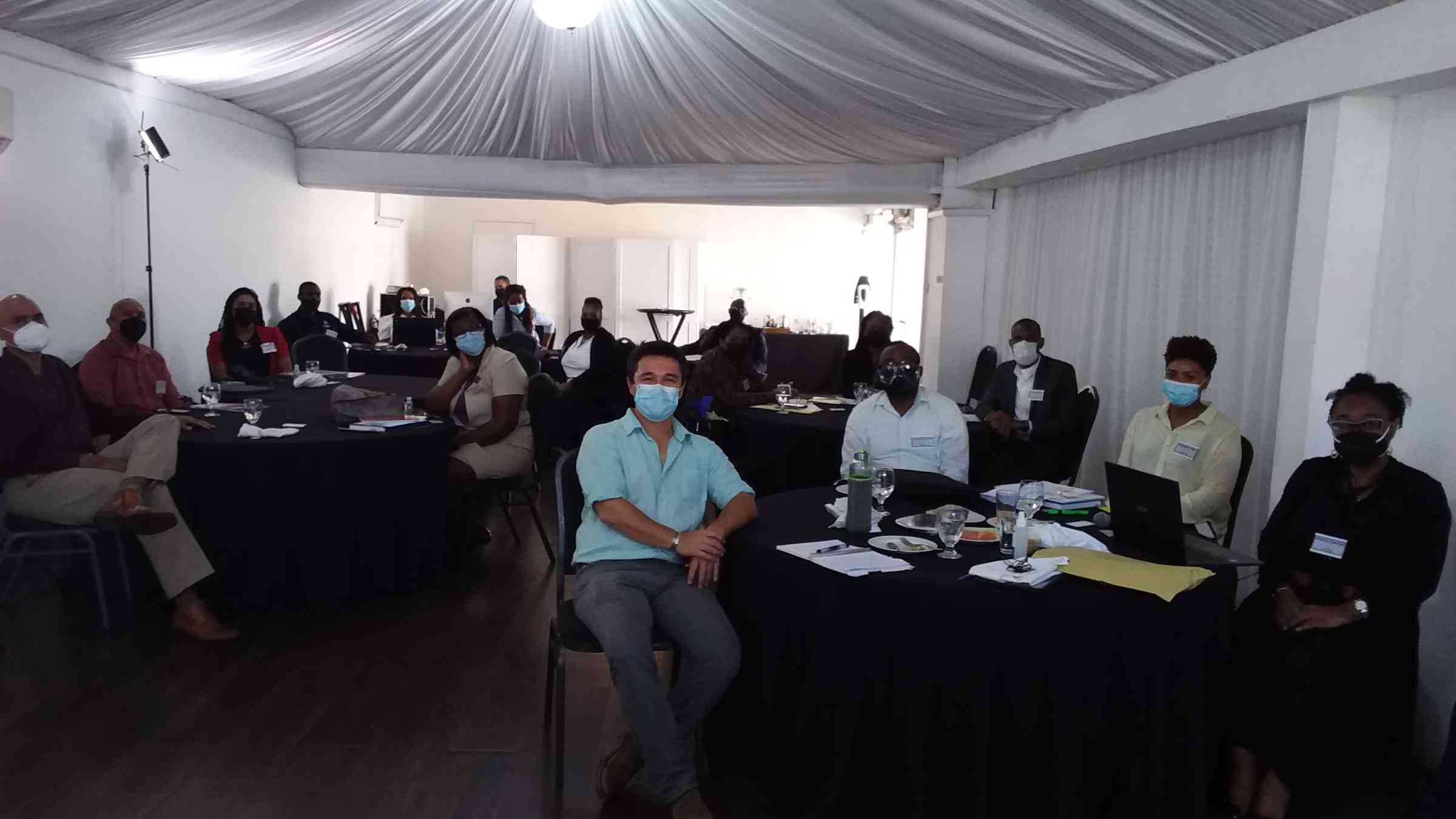Developing case studies applying the Forensic Investigations of Disasters in Jamaica

Recurrent disasters have created exposure hotspots in Jamaica calling for an understanding of the development of vulnerabilities and risks in the country based on forensic investigation. Jamaica has recently hosted the VII Regional Platform for Disaster Risk Reduction in the Americas and the Caribbean, during the ‘Learning Labs’ it provided a platform for researchers to give a valuable overview on the applications of the methodological approaches of the Forensic Investigations of Disasters.
The Forensic Investigations of Disasters, also referred to as the FORIN methodology, aims to understand the root causes of disasters through an in-depth investigation by applying multiple research approaches such as meta-analysis, disaster scenario building, retrospective longitudinal analysis and comparative analysis. This conceptual framework and research guide was developed by Dr. Anthony Oliver-Smith, Dr. Irasema Alcántara-Ayala, Dr. Ian Burton and Dr. Allan Lavell. This approach supports the development and integration of science into disaster risk management.
The FORIN Methodology two-day workshop held on January 19 and 20 in Kingston, Jamaica, convened 28 participants from local and national governmental agencies. The workshop concluded with two formulated case studies agreed upon by all participating stakeholders. These case studies will be developed in the following years and presented at the next Regional Platform for Disaster Risk Reduction in the Americas and the Caribbean.
Michelle Edwards, Senior Director of Mitigation, Planning and Research at the Office of Disaster Preparedness and Emergency Management (ODPEM) of Jamaica, introduced the workshop highlighting the importance to “examine the serious inquiries into the causes of disasters” and emphasized how the findings from the FORIN methodology will be incorporated into their planning.
“The Sendai Framework explicitly calls us to enhance the scientific and technical work and we are [achieving this] with the support of scientific and technical advisory groups. So that we can strengthen the evidence base in support of [the] implementation of the framework and to promote scientific research on disaster risk patterns on causes and effects,” explained Nahuel Arenas, Deputy Chief of the United Nations Regional Office of Disaster Risk Reduction of the Americas, and the Caribbean, further emphasizing how we must strengthen collaboration with the science and technology community to help bridge the gap between science in policymaking and implementation.
Alonso Brenes, coordinator of LA RED and specialist in disaster risk reduction and territorial development, guided the participants through the development of the FORIN framework and provided examples of its practical application with case studies in the region, such as in Peru, Uruguay, and Costa Rica.
Reflections on the history of disasters in Jamaica guided the discourse in identifying the overlapping hazards, such as hurricanes, floods, and drought and their impact on tourism, agriculture, infrastructure, health services, education, and the economy. They further deliberated on the different scenarios, considering historical events as well as hotspots in Jamaica with recurrent events and other demographic and socioeconomic factors.
They also highlighted critical limitations that hinder disaster risk management development and implementation, and, as such, called for strengthened local governance, resilient infrastructure, and an increase in willingness urging for the integration of sustainable development.
The workshop concluded with two case studies agreed upon by all stakeholders looking at the seismic hazard in Jamaica by applying scenario building and complemented by meta-analysis approach and analyzing floods in Kingston & Montego Bay by applying a comparative analysis with a retrospective longitudinal analysis.
During the following two years, there will be continued conversation of the application of the FORIN methodology, approaches in data collection, continued workshops, and webinars with researchers and scientists.
“Disaster Management is an evolving science and with ever changing time we get new concepts, new methodology that we have to look deeply into,” said Mr. Richard Thompson, Deputy Director General of the Office of Disaster Preparedness and Emergency Management ODPEM, reflecting on the results of the workshop. He added how these analytic constructions can be applied to the overall systems and culture of Jamaica.
Explore further
Is this page useful?
Yes No Report an issue on this pageThank you. If you have 2 minutes, we would benefit from additional feedback (link opens in a new window).